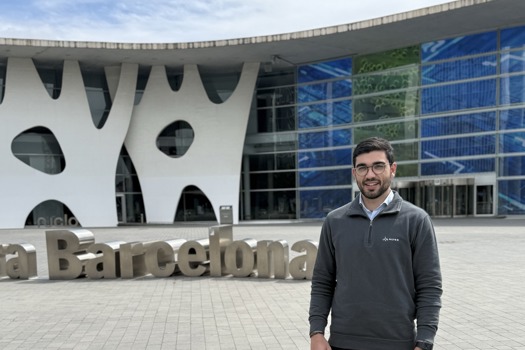Chairman Mark Scanlon said the Walstead team would be willing to buy all or part of Polestar, if it was invited to do so by Deloitte or by Polestar’s lenders.
“We believe that the UK’s publishers and commercial print buyers need a strong and financially stable large-scale printer that can continue to adapt to challenging market conditions,” Scanlon told PrintWeek.
“By us saving Polestar and combining it with Wyndeham we would create a national champion, which in turn would offer the most secure future for its employees and other stakeholders.”
Scanlon said he was “confident” that Walstead could raise the necessary funds despite being around half the size of Polestar in the UK, given its track record of acquisitions.
It acquired Wyndeham in 2008, Southernprint in 2009, and the St Ives magazine division in 2011. Just seven months ago it completed its biggest deal yet, via sister firm Walstead Capital, when it purchased Be Printers’ €130m (£101m) turnover Spanish web and gravure operations. Shortly after that Wyndeham bought the former Artisan bindery facility.
Walstead Investments and Walstead Capital have common shareholders.
“We have never been unable to raise funding for any of the five deals we’ve completed in the UK and Spain since 2008. I am confident we could buy Polestar,” Scanlon added. “Obviously, our main focus is the web and gravure printing businesses in Sheffield, Bicester and Chantry. However, we would consider the other operations if the price was right.”
Scanlon acknowledged that, if a takeover deal did become a reality, it could potentially face issues with the Competition & Markets Authority. “That’s a possibility, but I would hope the prospect of saving jobs and maintaining capacity within the UK for its publishing sector would present a strong argument to allow the merger,” he said.
In the year to 31 December 2014 Walstead Investments, the parent of Wyndeham Group, posted a drop in sales from £120.2m to £111.3m. The group lost its share of the Time Inc UK magazine printing contract last year, with the work moving to Polestar over the summer of 2014.
Operating margins were reduced from 6% to 4.5%. Adjusted EBITDA on continuing operations was £9.8m (2013: £11.9m). Sales on continuing operations were £109.2m.
“In my view this was a very creditable performance in trying circumstances,” Scanlon stated.
It closed the Wyndeham Heron web offset site as a result of losing the Time Inc work. “Unlike some of our competitors we will not chase business to the point where it is unprofitable for us and disruptive for our other clients,” Scanlon said in his chairman’s report.
The closure of the Essex factory contributed to £7.3m of exceptional costs for restructuring, redundancies and impairment of fixed assets (2013 exceptionals: £1.8m), resulting in a pre-tax loss for the year of £3.5m.
In his 2015 outlook Scanlon also said there had been "some signs of a slowdown in the sharp volume declines of recent years".
He added that like-for-like sales this year (excluding Time Inc, Print Direct and Gait) were down just 1% to the end of October. Net sales excluding paper were up by 1%.
"Print is not dead - not yet; and while it remains alive we intend to be the most vigorous player in the sector," he said.










